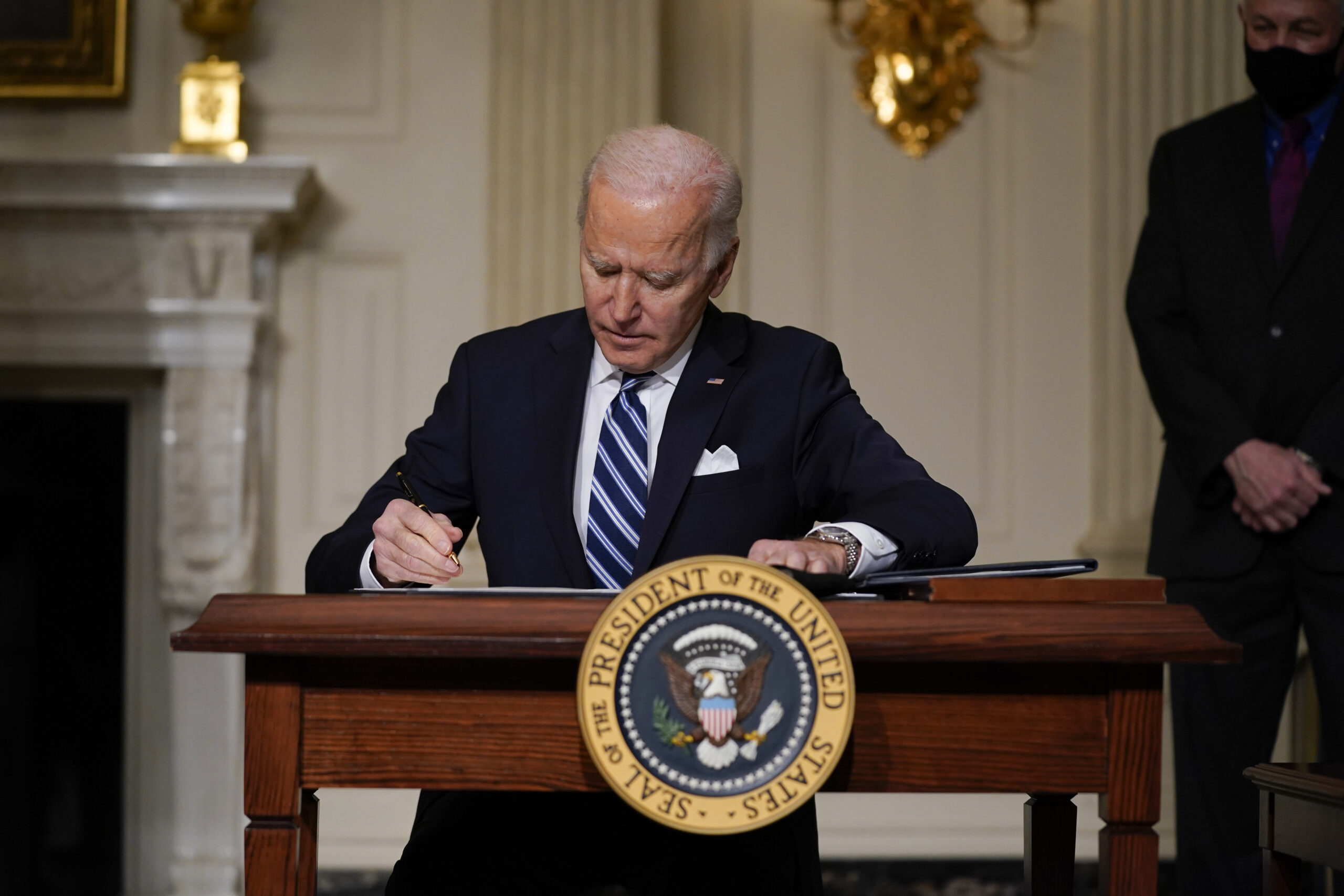MORGANTOWN – State Attorney General Patrick Morrisey is leading another multi-state effort against what it considers another Biden Administration end run on Congress to hasten its green energy goals.
In this instance, it’s a brief supporting a lawsuit filed by 11 states against the National Highway Traffic Safety Administration and its proposed Corporate Average Fuel Economy Standards for Model Years 2024-26 Passenger Cars and Light Trucks. An additional seven states signed on to Morrisey’s brief.
Morrisey’s announcement of the brief explained that NHTSA’s fuel economy standards, which were announced on April 1, require “an industry-wide fleet average of approximately 49 mpg for passenger cars and light trucks in model year 2026,” and an increase of fuel efficiency by 8% per year for passenger cars and light trucks with a model year of 2024 and 2025.
The brief says, “Americans depend on affordable vehicles to ferry them to work and play, church and school, friends and family. Trucks, meanwhile, help Americans do the hard work of hauling and towing. Pickup trucks and cars, in short, are critical. The States thus have an interest in ensuring that federal regulations do not make vehicles so prohibitively expensive to buy and drive that state residents can no longer freely enjoy the open road.”
It alleges, “These standards are so aggressive, for instance, that just two pickup truck models can presently hope to meet them. And cars, trucks, and sport utility vehicles will become pricier all around.”
The case is being heard in the U.S. Court of Appeals for the District of Columbia Circuit.
It alleges several problems in NHTSA’s plan:
- Although Congress empowered NHTSA to determine maximum feasible average fuel economy standards, it also prohibited the agency from considering electric vehicles when doing so. But NHTSA based its proposal on California’s ZeroEmission Vehicle (ZEV) Program, which is built around electric vehicles, to determine what fuel-efficiency standards manufacturers could achieve across the country.
- Under the Energy Policy and Conservation Act, states are prohibited from “adopting or enforcing a law or regulation related to fuel economy standards. But NHTSA is allowing California to set national energy policy.
- “By forcing auto manufacturers to produce more electric vehicles, NHTSA will force the United States to become beholden to foreign interests; those interests control the materials and components that electric vehicles need. Not only that, but more electric vehicles will burden national electric grids that may not be up to the task of taking on so much new demand. … By pushing to electrify fleets fast, the Final Rule will only worsen present supply-chain problems.”
Morrisey said in his announcement, “This administration’s mission seems to be to cripple the economy, increase inflation and prolong the suffering of millions of Americans struggling to make ends meet. The NHTSA final rule will undoubtedly cause the United States to be dependent on other nations like China for our energy needs and will undermine American energy security by increasing demand and strain power grids.”
Texas is the lead state in the suit, joined by Arkansas, Indiana, Kentucky, Louisiana, Mississippi, Montana, Nebraska, Ohio, South Carolina and Utah.
Joining Morrisey in the brief are Alabama, Kansas, Missouri, Oklahoma, Tennessee, Virginia and Wyoming.
Tweet David Beard @dbeardtdp Email dbeard@dominionpost.com




